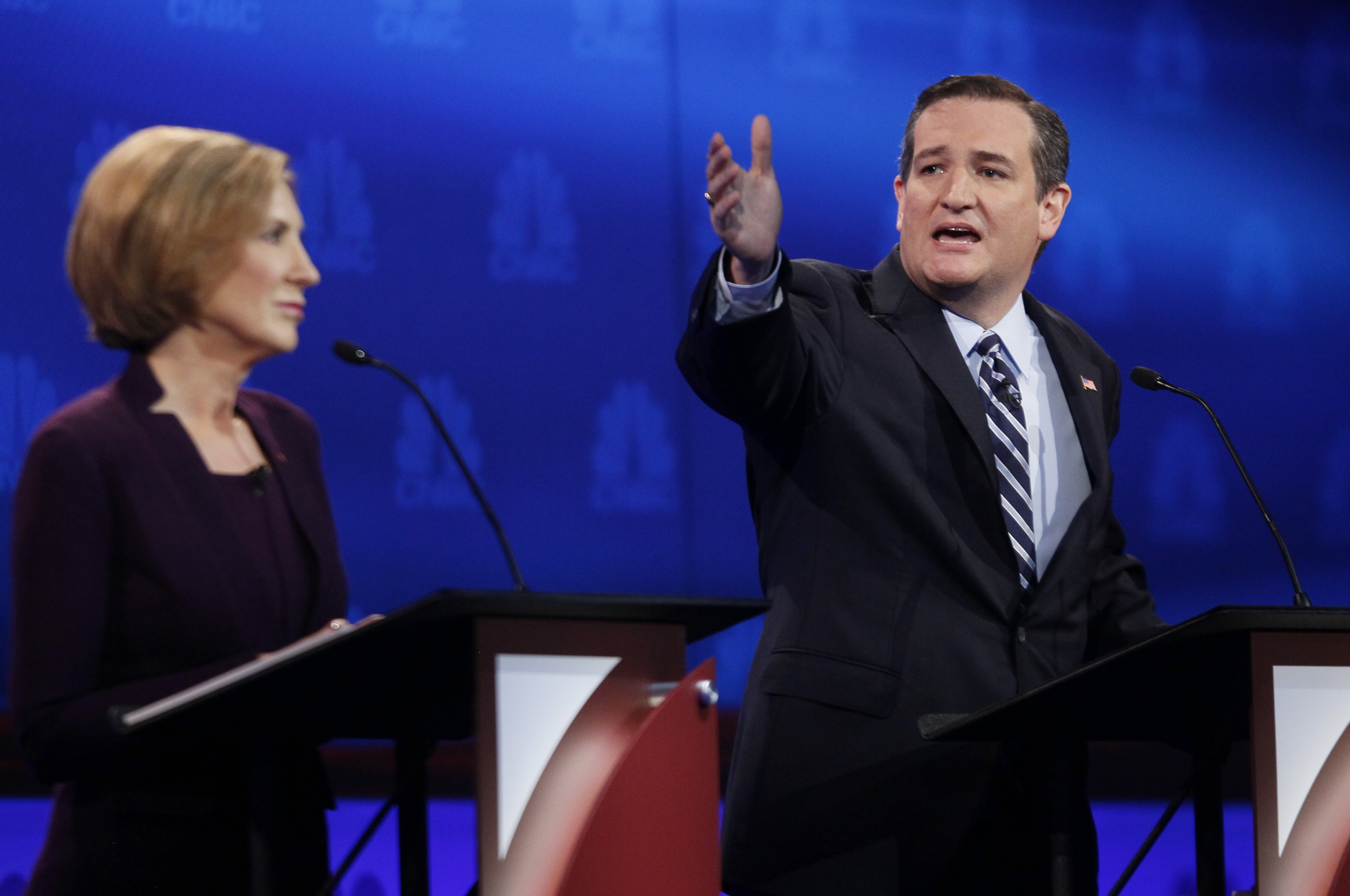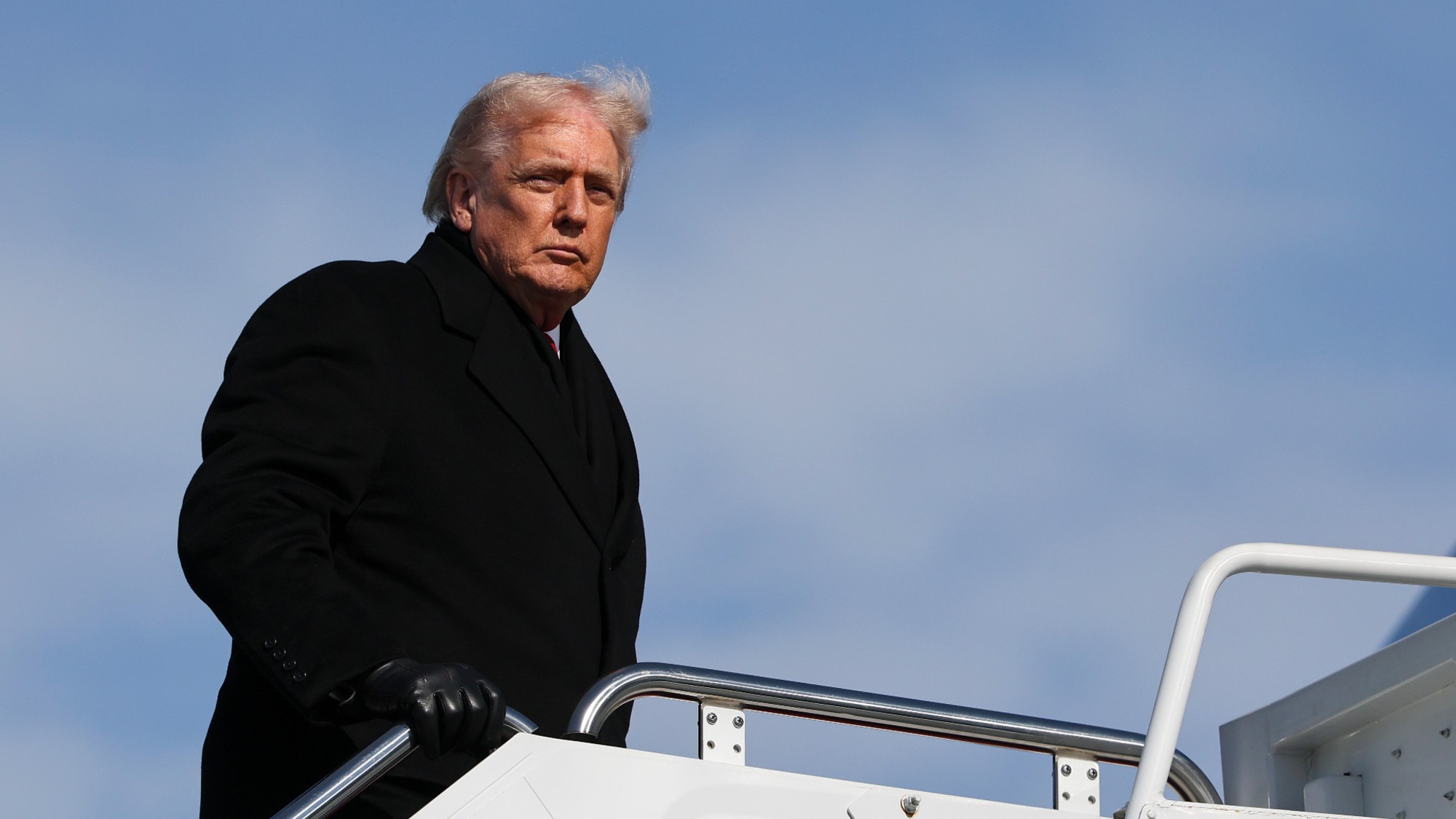Republicans displayed their passion for the little guy at Wednesday's debate. It was a total scam.
Judging by the rhetoric at the third Republican debate, the GOP has become a populist party. Or has it?


If you knew absolutely nothing about American politics and tuned into the Republican presidential debate Wednesday night, you would have come away convinced that the GOP is the party of the little guy, the party that wants to advocate for low-wage workers, middle-class families, and those who are struggling. And the wealthy? Screw those guys — Republicans can't stand them. If somebody told you that this party's last presidential nominee got in a heap of trouble for contemptuously saying that 47 percent of Americans are lazy leeches who just want to live off government handouts while the morally upstanding wealthy do all the work, you'd respond, "Surely you must be mistaken."
In case you didn't tune in to this festival of populist passion, here are a few of the highlights:
- Like many of the candidates, Ted Cruz has a flat tax plan, which because it eliminates tax progressivity would entail huge tax cuts for the wealthy. He described it by saying, "The billionaire and the working man, no hedge fund manager pays less than his secretary."
- In the course of arguing (from what I could tell) that all taxation is theft, Mike Huckabee said, "This is for the guy, you know, who owns a landscaping business out there. If somebody's already stolen money from you, are you going to give them more?"
- Carly Fiorina, a former corporate CEO whose biggest accomplishment was the disastrous merger between HP and Compaq, and who is worth tens of millions of dollars, railed against corporate mergers and the wealthy. "Big and powerful use big and powerful government to their advantage," she said. "It's why you see Walgreens buying Rite Aid. It's why you see the pharmaceuticals getting together. It's you see the health insurance companies getting together. It's why you see the banks consolidating. And meanwhile, small businesses are getting crushed....Big government favors the big, the powerful, the wealthy, and the well-connected, and crushes the small and the powerless."
- Marco Rubio related, for the eight zillionth time, the fact that his father was a bartender and his mother was a maid. John Kasich showed why he isn't in the top tier of candidates by failing to bring up the fact that his dad was a mailman.
- Ted Cruz said, "The truth of the matter is, big government benefits the wealthy, it benefits the lobbyists, it benefits the giant corporations. And the people who are getting hammered are small businesses, it's single moms, it's Hispanics. That is who I'm fighting for."
- "Wall Street is doing great," Cruz said later, and "today the top 1 percent earn a higher share of our income than any year since 1928," while the Federal Reserve has apparently caused the price of hamburgers to skyrocket.
- Rand Paul agreed that the Fed "causes income inequality."
- Ben Carson said that when it comes to regulations, "The reason that I hate them so much is because every single regulation costs in terms of goods and services. That cost gets passed on to the people. Now, who are the people who are hurt by that? It's poor people and middle class. Doesn't hurt rich people if their bar of soap goes up ten cents, but it hurts the poor and the middle class."
- "The simple fact is that my plan actually gives the middle class the greatest break," said Jeb Bush.
As it happens, the truth is that Bush's tax plan showers its biggest benefits on the wealthy, not the middle class, both in percentage terms and in absolute terms. And this is true of all the tax plans that have been released by the Republican candidates so far. They all either use a flat tax, which by definition cuts the taxes of the wealthy, or they reduce income taxes for the wealthy and eliminate other taxes the wealthy pay; for instance, Marco Rubio would completely eliminate both capital gains taxes and inheritance taxes. As Doyle McManus of the Los Angeles Times wrote, "among the proposals with real detail, there's a rough consensus, and it comes down to this: lower taxes for everybody, but especially for the wealthy."
The Week
Escape your echo chamber. Get the facts behind the news, plus analysis from multiple perspectives.

Sign up for The Week's Free Newsletters
From our morning news briefing to a weekly Good News Newsletter, get the best of The Week delivered directly to your inbox.
From our morning news briefing to a weekly Good News Newsletter, get the best of The Week delivered directly to your inbox.
Republicans would have a couple of responses to this objection. The first is that if you're going to cut everyone's taxes, of course the wealthy will benefit more, because they pay at higher rates and their incomes are higher. As Rubio himself said during the debate, "5 percent of a million is a lot more than 5 percent of a thousand. So yeah, someone who makes more money, numerically, it's going to be higher." But there's no requirement that if you're going to cut taxes you have to give everyone the same percentage reduction.
The second response Republicans have is that their tax plans, combined with eliminating regulations, will super-charge the economy to such a degree that people in the poor and middle class will benefit tremendously. There's a name for that idea: trickle-down economics.
And it isn't like we've never tried this before. You may remember a guy named George W. Bush, who was president not that long ago. He instituted a program pretty much exactly like what today's Republican candidates propose: large tax cuts targeted mostly at the wealthy combined with slashing regulations. And what happened? Anemic growth, culminating in the worst economic disaster since the Great Depression. If Republicans are right, how could such a thing have happened?
If you ask them, they'll reply that Bush wasn't true to conservative economic orthodoxy because he didn't cut the size of government. But if that's your explanation for why his economic record was so poor, then you're saying that neither cutting taxes nor cutting regulations would make much of a difference; all that matters is the size of government.
A free daily email with the biggest news stories of the day – and the best features from TheWeek.com
But then how could they explain the Clinton years, when the economy added 22 million jobs despite the fact that taxes went up, regulations increased, and government grew? It's a real head-scratcher.
Let me suggest something shocking: The Republican presidential candidates do not actually want to cut regulations, slash safety net programs (which didn't come up in the debate), and eliminate regulations on corporations because of their deep and abiding concern for the poor and middle class.
Some things don't change in American politics, one of which is that conservatives believe that making life easier for the wealthy and corporations is not just a good idea in practical terms but also a moral imperative. It's the latter that makes the former less important. Even when those policies fail to deliver us all to the economic Shangri-La conservatives promise, they do not lose faith in the policies' righteousness.
But other things do change. Right now we're in a time of economic anxiety, when inequality and stagnant wages have made trickle-down economics particularly unappealing. So if you aren't going to offer something different than what you have before, the next best thing is to clothe it in populist rhetoric. It remains to be seen whether anyone will buy it.
Paul Waldman is a senior writer with The American Prospect magazine and a blogger for The Washington Post. His writing has appeared in dozens of newspapers, magazines, and web sites, and he is the author or co-author of four books on media and politics.
-
 ‘Ghost students’ are stealing millions in student aid
‘Ghost students’ are stealing millions in student aidIn the Spotlight AI has enabled the scam to spread into community colleges around the country
-
 A running list of everything Donald Trump’s administration, including the president, has said about his health
A running list of everything Donald Trump’s administration, including the president, has said about his healthIn Depth Some in the White House have claimed Trump has near-superhuman abilities
-
 NASA’s lunar rocket is surrounded by safety concerns
NASA’s lunar rocket is surrounded by safety concernsThe Explainer The agency hopes to launch a new mission to the moon in the coming months
-
 The billionaires’ wealth tax: a catastrophe for California?
The billionaires’ wealth tax: a catastrophe for California?Talking Point Peter Thiel and Larry Page preparing to change state residency
-
 Bari Weiss’ ‘60 Minutes’ scandal is about more than one report
Bari Weiss’ ‘60 Minutes’ scandal is about more than one reportIN THE SPOTLIGHT By blocking an approved segment on a controversial prison holding US deportees in El Salvador, the editor-in-chief of CBS News has become the main story
-
 Has Zohran Mamdani shown the Democrats how to win again?
Has Zohran Mamdani shown the Democrats how to win again?Today’s Big Question New York City mayoral election touted as victory for left-wing populists but moderate centrist wins elsewhere present more complex path for Democratic Party
-
 Millions turn out for anti-Trump ‘No Kings’ rallies
Millions turn out for anti-Trump ‘No Kings’ ralliesSpeed Read An estimated 7 million people participated, 2 million more than at the first ‘No Kings’ protest in June
-
 Ghislaine Maxwell: angling for a Trump pardon
Ghislaine Maxwell: angling for a Trump pardonTalking Point Convicted sex trafficker's testimony could shed new light on president's links to Jeffrey Epstein
-
 The last words and final moments of 40 presidents
The last words and final moments of 40 presidentsThe Explainer Some are eloquent quotes worthy of the holders of the highest office in the nation, and others... aren't
-
 The JFK files: the truth at last?
The JFK files: the truth at last?In The Spotlight More than 64,000 previously classified documents relating the 1963 assassination of John F. Kennedy have been released by the Trump administration
-
 'Seriously, not literally': how should the world take Donald Trump?
'Seriously, not literally': how should the world take Donald Trump?Today's big question White House rhetoric and reality look likely to become increasingly blurred
